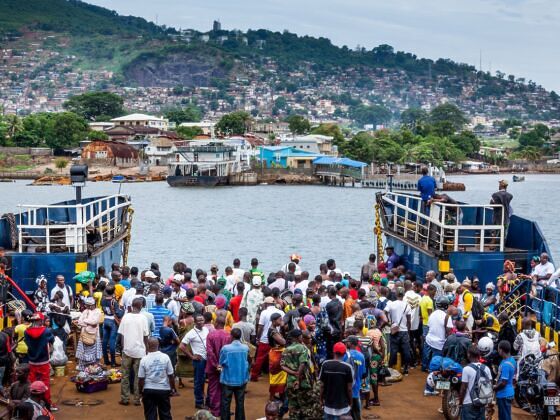Most of the foreigners in Sierra Leone are here to work or volunteer, rather than to travel for the sake of traveling.
I have yet to encounter a bona fide tourist who’s in the West African country purely for pleasure and exploration. Most of the sun worshippers at River No. 2 beach on Saturdays – arguably the nicest beach in Sierra Leone – are NGO workers like myself, taking time off work to enjoy the country’s undeniable beauty.
